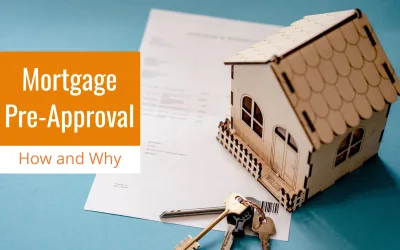When taking out a mortgage to purchase a home, it’s important to understand all the associated costs involved in the transaction. One crucial aspect to consider is the closing costs. These are fees and charges that homebuyers are required to pay when closing the mortgage loan. In this blog post, we will delve into the details of closing costs to provide you with a comprehensive understanding of what to expect.
Closing costs typically include various fees and charges associated with the mortgage loan process. Although these costs vary depending on several factors, such as location and loan size, they generally range from 2% to 5% of the total loan amount. Let’s take a closer look at some of the common closing costs you may encounter:
1. Origination Fees: This fee is charged by many lenders to process the loan application. It covers administrative costs, such as document preparation, underwriting, and loan funding. Origination fees are usually a percentage of the loan amount and can vary between lenders. At Capital City Mortgage, we only charge this if it benefits our clients.
2. Appraisal Fees: An appraisal is required by most lenders to determine the fair market value of the property being purchased. The buyer typically pays the appraisal which can vary in price, depending on the property, loan type, and complexity.
3. Credit Report Fees: Lenders will pull your credit report to assess your creditworthiness. They charge a fee for obtaining this report.
4. Title Company Fees and Title Insurance: These costs guarantee that the property being purchased has a clear title and is free of any liens or legal issues. The title search fee ensures that there are no potential problems, while title insurance protects the buyer and lender against any future claims on the property. In addition, title companies will typically handle the loan closings and ensure all funds are properly dispersed.
5. Home Inspections and Pest Inspection Fees: It’s highly recommended to have a professional home inspection before purchasing a property. The inspection costs are typically paid at closing and can range from a few hundred to several thousand dollars, depending on the property’s size and condition. The most common inspections in Nebraska are pest, whole house, and radon.
6. Miscellaneous Fees: Some lenders do have several third-party fees they will charge. Some of the common fees include verification fees, flood certification fees, and tax service fees.
7. Escrow Fees: Escrow accounts are often set up to hold funds for property taxes and homeowners insurance. Lenders typically require buyers to contribute a certain amount towards these accounts at closing.
8. Mortgage Insurance: If you’re putting less than 20% down on your home purchase, you may be required to pay for mortgage insurance. This helps protect the lender in case of default. Mortgage insurance costs can be paid upfront or added to your monthly mortgage payments.
9. Recording Fees: When a mortgage is financed, it needs to be recorded in the public records. Recording fees vary by location and are typically paid at closing.
10. Prepaid Interest: Your mortgage payment typically covers principal and interest. If you close in the middle of a month, your lender may require you to prepay the interest for that partial month.
11. Discount Fee or Lender Credit: Every interest rate available has a cost or a rebate associated with it. If you hear about “buying down” the rate, they are referring to paying a discount fee. This fee can vary depending on the borrower profile, loan product, and borrower preference. We will help to determine the best route for our clients.
It’s important to note that closing costs can vary depending on the lender and location. Additionally, some costs can be negotiated between the buyer and seller, with either party agreeing to cover certain expenses. As a homebuyer, obtaining a loan estimate from your lender early on is essential to get an idea of the potential closing costs you’ll need to pay.
In conclusion, closing costs are an important consideration when obtaining a mortgage. They encompass various fees and charges contributing to the overall home purchase cost. Understanding these costs and planning for them in advance can ensure a smoother homebuying process and avoid any financial surprises at closing.
What is a Mortgage Pre-Approval, and How Does it Work?
If you're in the market to buy a home, you've likely heard the term "mortgage pre-approval" thrown around. But what exactly does it mean, and how does it work? In this comprehensive guide, we'll break down everything you need to know about mortgage pre-approval, from...
What are the different types of mortgages in Nebraska?
Nebraska, with its amazing small towns and vibrant communities, serves as a desirable destination for many people looking to settle down and buy a home. However, navigating through the intricate world of mortgages can often feel overwhelming. With various types of...
What is an escrow account in a mortgage?
Purchasing a home is a significant financial decision, and most homeowners rely on a mortgage to fulfill their dream. However, the mortgage process can be complex, filled with unfamiliar terms and concepts. One such term is an escrow account. If you are a first-time...




